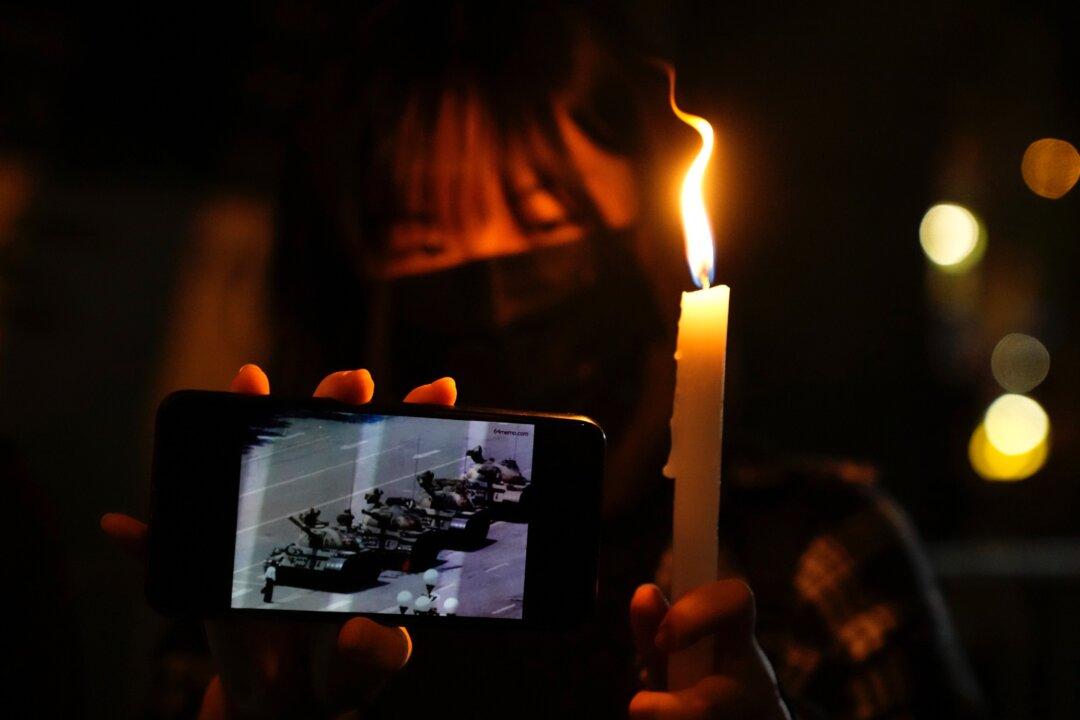The Chinese communist regime is tightening its suppression of Chinese activists ahead of June 4, which this year marks the 33rd anniversary of the massacre of peaceful student protesters in Tiananmen Square.
The Chinese-language edition of The Epoch Times attempted to contact several activists in China ahead of the anniversary, which every year marks a period of increased clamp downs on activists by the Chinese Communist Party. Some of those contacted by The Epoch Times were on “a trip,” some were under house arrest much earlier than in previous years, and others said they couldn’t receive phone calls from outside China.
The Forced Trip
Beijing dissident Ji Feng has been routinely made to take a forced trip for the past 15 years.“They are ordering tickets now. I will have to go to the mountain area in Guizhou Province this afternoon,” Ji said on May 30.
He’s not allowed to stay in Beijing, where multiple universities are currently facing student protests against the strict lockdown measures on campuses.
The renowned Peking University, Beijing Normal University, and Tianjin University have had students gathering and protesting; some students shouted, “Down with bureaucracy.”
Both Ji and Gao live in Beijing, but they aren’t allowed to call each other. Ji said, “The phone has been blocked for more than a month, including international calls.”
The 85-year-old Zhang Xianling, one of the “Tiananmen Mothers,” also suspects the surveillance of the regime has changed from individual stalking and harassing to blocking their phones under the pandemic, Radio Free International reported.

Dissident Hu Feng (pseudonym) has been under house arrest and surveillance for more than a week. “My phone is tapped,” he said on May 30.
Internet Interference
Mr. Qian, a dissident in the coastal province of Jiangsu, said the internet blockade had been tightened recently. The signal has been unstable and frequently disconnects.He commented that the 1989 massacre happened because of the regime’s fear that it would collapse.
In 1989, Ma Xiaoming, former editor of Shaanxi Province TV Station, was dismissed from his job as punishment for a report he wrote and for participating in local protests and petitions supporting the democracy petition at Tiananmen Square.
Ma, now 71, said: “For the past 30 some years, my phones—both home phone and cellphone—have been interrupted. This is human rights in China.”
Since 1989, Ma has been conducting his own investigation of local cases of human rights abuse. “I speak with facts. That frightens the regime. They have been interfering with my telecommunication, interviews, and issuing of reports.”
“I suppose it’s getting close to June 4, the sensitive day,” he said.

A Big Scar on the Regime: Activist
Activist Dong Guangping was a police officer in Zhengzhou City. He lost his job in 1999 because he criticized the regime and participated in a Tiananmen massacre memorial. He was imprisoned for his human rights activities in 2001 and 2014, respectively.He said the massacre was a big scar on the regime, and the CCP couldn’t tolerate it being exposed.
“The regime is good at controlling the people through cellphones or telecommunications,” and its purpose is “blocking the Chinese voices from being heard by the outside world,” he said.




